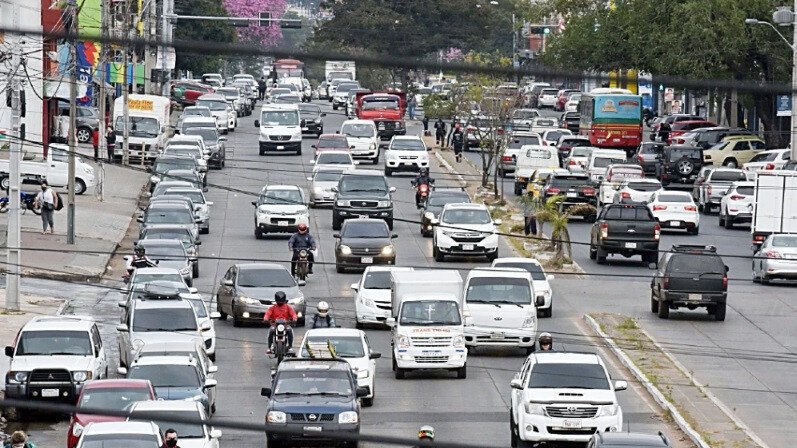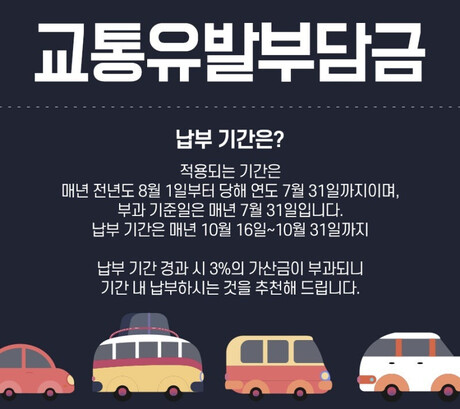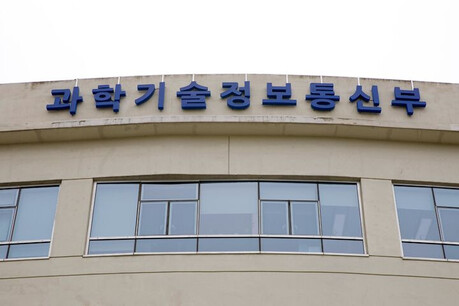
Asunción, Paraguay – In accordance with the re-promulgated vehicle license plate law, the National Traffic and Road Safety Agency (ANTSV) has regulated the application of fees across all municipalities nationwide and recently published a relevant resolution. With less than a month remaining until the deadline for vehicle registration (habilitación vehicular) renewal, the Traffic Agency has stipulated the fees based on Law No. 7459/2025. This law reverts to the previous standard, which calculated fees based on 0.3% of the taxable value, progressively decreasing by 5% annually until the 10th year.
Vehicle license plates (patentes de rodados) are set to expire on June 30th. According to Nelson Peralta, head of the Paraguayan Organization of Municipalities (Opaci), some municipalities have already begun applying the new fees as of yesterday.
The idea behind Law No. 7447/2025, which aimed to price vehicles based on their age, was swiftly discarded due to the immense confusion caused by excessive costs immediately after its implementation. This law lost its effect shortly after being enacted and faced strong public backlash. At the time, vehicle owners complained about registration fees that had surged by several times compared to previous rates, leading to large-scale protests and criticism of the government. In response, former President Mario Abdo Benítez heeded citizens' demands and ordered a review of the bill, resulting in the current re-promulgation of Law No. 7459/2025.
"What is considered in determining the taxable value? Origin, brand, model, and year. These four are the criteria for taxable value. Citizens can visit the Opaci website, enter the relevant data into the system, and check the tax value applicable to them," explained Director Peralta in an interview with NPY.
The database where drivers can look up the taxable value for their respective vehicles is available at www.opaci.org.py. Peralta emphasized, "After that, each municipality, based on its autonomy, will collect special fees or charges. Therefore, there are administrative costs and other items collected by each municipality."
He also mentioned that 10% of the tax value is included for road maintenance costs, which are levied along with the vehicle registration fee calculation.
"Some municipalities applied it yesterday, others will apply it in a few days, and they have up to 45 days to adjust their finances and overhaul all their computer systems in line with the new law. After that, proper controls will be put in place under this same law, which stipulates that no one can collect less than the set amount. In the past, there were such cases, and any municipal mayor who violates this will have to pay a fine equivalent to 106,000 and some guaraníes, which is the daily minimum wage per wrongly issued registration," Peralta stressed.
This revision of the law is seen as a measure to increase transparency and prevent imbalanced registration fee collection among municipalities. In the past, some municipalities illegally set lower registration fees to attract vehicle owners, which hindered fair competition and negatively impacted national fiscal revenue. The new law aims to eradicate such practices and compel all municipalities to collect registration fees based on unified standards, thereby focusing on establishing a fair and predictable system.
Furthermore, by clearly outlining the progressive reduction system that reflects the depreciation of vehicle value due to aging, this amendment is expected to help alleviate the burden on owners of older vehicles. This could also encourage longer vehicle replacement cycles and promote environmentally friendly driving.
However, during the initial implementation of the new system, public confusion and inquiries are anticipated. Providing information through the Opaci website and active public relations and guidance from each municipality are essential for a smooth institutionalization of the system. In particular, some municipalities may experience temporary confusion as their systems are not yet fully prepared, so drivers should definitely check the Opaci website or contact the relevant municipality for accurate information before renewing their registration.
This change in vehicle registration regulations is expected to be a significant step forward in developing Paraguay's traffic administration system and moving towards more transparent and fair operations. However, successful implementation will require active cooperation among government agencies, municipalities, and citizens.
[Copyright (c) Global Economic Times. All Rights Reserved.]






























